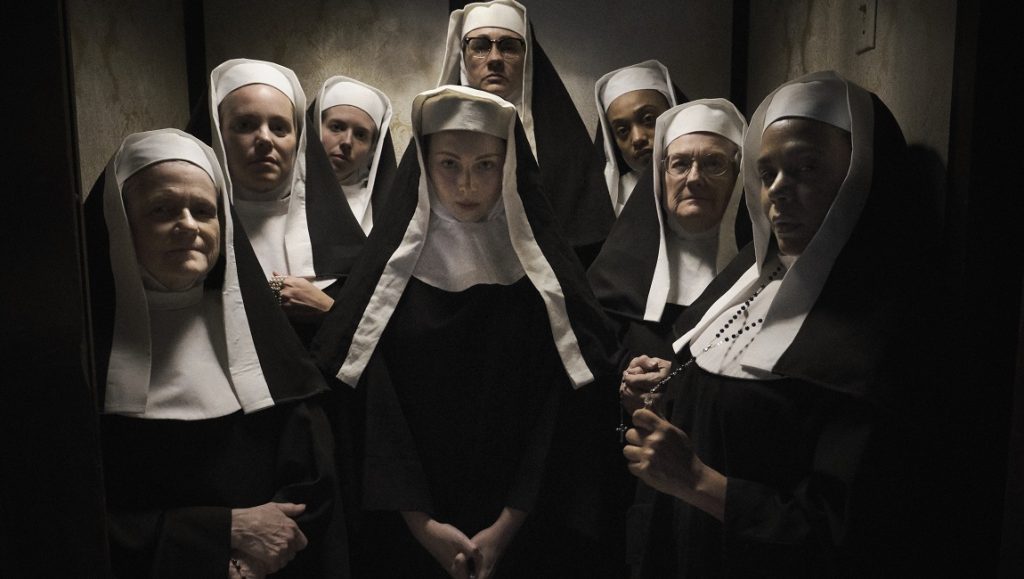Mickey Reece makes idiosyncratic, uncategorizable films, chamber horror Agnes is his best film to date.
Prolific Oklahoma underground filmmaker Mickey Reece is out there blowing up everyone’s spot again with another affecting and deeply idiosyncratic work that — like previous films such as Climate of the Hunter or Alien — is as specific as it is almost uncategorizable. Agnes is part horror film and part camp comedy, a drama of isolation and melancholy, and an investigation of the ways in which faith both shields us from and disguises the harsher realities of a mundane world.
It begins with the title character, a nun who might be possessed by a demon. The church calls in somewhat disfavored priest Father Donaghue (regular Reece collaborator Ben Hall), partly because he’s one of the only trained exorcists, but mostly because they want him to fail so they can kick him loose. The old priest brings a young priest, of course, enthusiastic Ben (Jake Horowitz), full of youthful integrity and faith. That’s the general setup, and while the first half of Agnes takes place in the hermetic, often bizarrely humorous world of the convent, it’s the second half that gives the film its resonance. After the exorcism, Agnes’ friend Sister Mary (Molly Quinn), herself still reeling from the loss of a child and discombobulated by the events’ witnesses, leaves the church. Much as the sisters are isolated from the outside world within the convent walls, now Mary is merely differently isolated from that same world by her status as a former nun and by the pain she’s tried to escape. The meaning and solace she sought in faith has been erased.
Quinn’s performance is truly remarkable, unself-conscious but mannered and a little awkward, as Mary seems both worldly by fact of her past experiences but also completely unprepared for re-entry. In the first half of the film, Reece finds her in the background or off to the sides, but as Mary takes over the movie, she’s isolated in larger, more oppressive frames. As a director, Reece keeps building on his previous work. Agnes has elements of the regional horror chamber drama of Climate of the Hunter, but the sly humor and careful observation of unvarnished humanity has bled over into a more recognizable everyday world here. His movies, as they grow increasingly more ambitious, are nothing less than unique, revealing — and indicting — the miserable aesthetic homogeneity and almost total lack of imagination in modern indie genre filmmaking. He’s the real thing, and Agnes is his best work to date.
Originally published as part of Tribeca Film Festival 2021 — Dispatch 3.


Comments are closed.